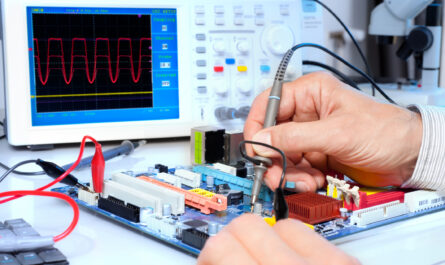The global Proton Therapy Market is estimated to be valued at US$ 2,763.2 million in 2023 and is expected to exhibit a CAGR of 13.0% over the forecast period 2023-2030, as highlighted in a new report published by Coherent Market Insights.
A) Market Overview:
The proton therapy market involves the use of proton beams to treat cancerous tumors. This treatment is highly precise, targeted, and minimizes damage to healthy tissues and organs. Proton therapy is most commonly used to treat pediatric cancer patients and tumors in sensitive areas such as the brain, spinal cord, and prostate. It offers benefits over traditional radiation therapy, such as reduced side effects and increased efficacy. The increasing prevalence of cancer, coupled with advancements in technology, is driving the demand for proton therapy worldwide.
B) Market Dynamics:
1. Driver: Technological Advancements
Technological advancements in proton therapy, such as compact proton therapy systems and pencil beam scanning, are driving the market growth. Compact proton therapy systems are smaller, more affordable, and easier to install, making proton therapy more accessible to a larger patient population. Pencil beam scanning allows for even more precise targeting of cancerous tissues, reducing the risk of damage to healthy tissues.
2. Opportunity: Growing Demand for Cancer Treatment
The demand for proton therapy is increasing due to the rising prevalence of cancer worldwide. According to the World Health Organization, cancer is the second leading cause of death globally, with approximately 9.6 million deaths in 2018. Proton therapy offers a highly effective and targeted treatment option for cancer patients, leading to increased adoption and demand for proton therapy systems.
C) Segment Analysis:
The Proton Therapy Market can be segmented based on treatment type, indication, and end-user. The treatment type segment includes single-room systems and multi-room systems. The indication segment includes prostate cancer, brain cancer, pediatric cancer, lung cancer, and others. The end-user segment includes hospitals, cancer research centers, and others. Among these segments, the multi-room systems segment dominates the market due to their higher efficiency and capacity to treat a larger number of patients.
D) PEST Analysis:
– Political: The political landscape plays a significant role in the adoption and implementation of proton therapy in different regions. Government regulations and policies can either encourage or hinder the growth of the market.
– Economic: The economic factors such as healthcare expenditure, insurance coverage, and affordability of proton therapy systems influence the market growth.
– Social: The increasing awareness about the benefits of proton therapy among patients and healthcare professionals is driving the market growth.
– Technological: Technological advancements in proton therapy systems, such as intensity-modulated proton therapy (IMPT), are driving the market growth by offering more precise and effective treatment options.
E) Key Takeaways:
– The global proton therapy market is expected to witness high growth, exhibiting a CAGR of 13.0% over the forecast period, owing to increasing technological advancements and the growing demand for cancer treatment.
– Regionally, North America dominates the market due to the presence of advanced healthcare infrastructure, increasing prevalence of cancer, and higher adoption of proton therapy systems.
– Key players operating in the global proton therapy market include Hitachi Ltd., Ion Beam Applications S.A, Mevion Medical Systems, Mitsubishi Electric Corporation, Provision Healthcare, ProTom International, Sumitomo Heavy Industries, Varian Medical Systems, Optivus Proton Therapy, Inc., and Advanced Oncotherapy plc.
In conclusion, the global proton therapy market is expected to experience significant growth in the coming years, driven by technological advancements and the increasing demand for cancer treatment. Proton therapy offers a precise and targeted approach to cancer treatment, minimizing damage to healthy tissues and organs. With the continuous development of compact proton therapy systems and innovations in treatment techniques, the market is projected to expand, providing a more accessible and effective solution for cancer patients worldwide.



